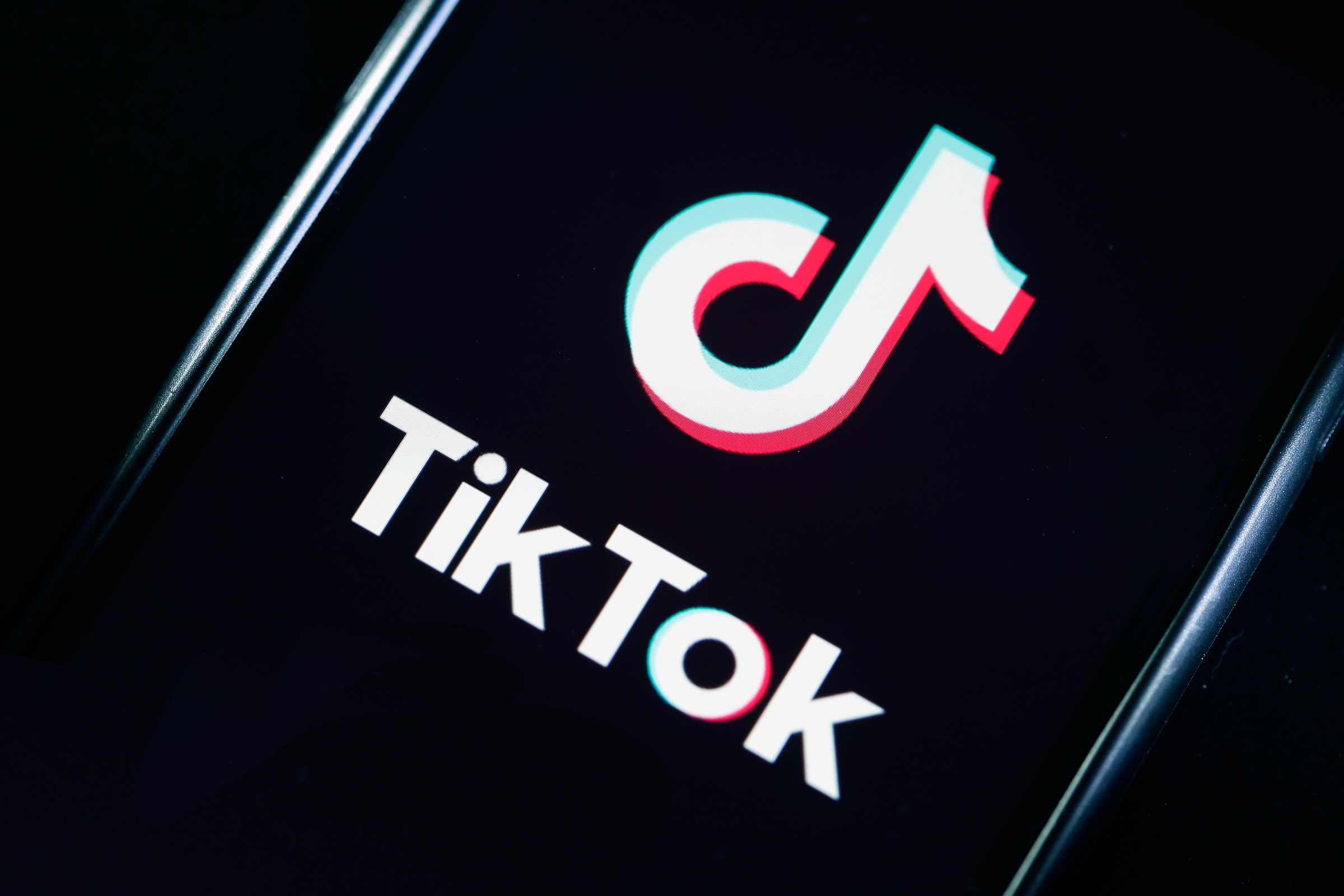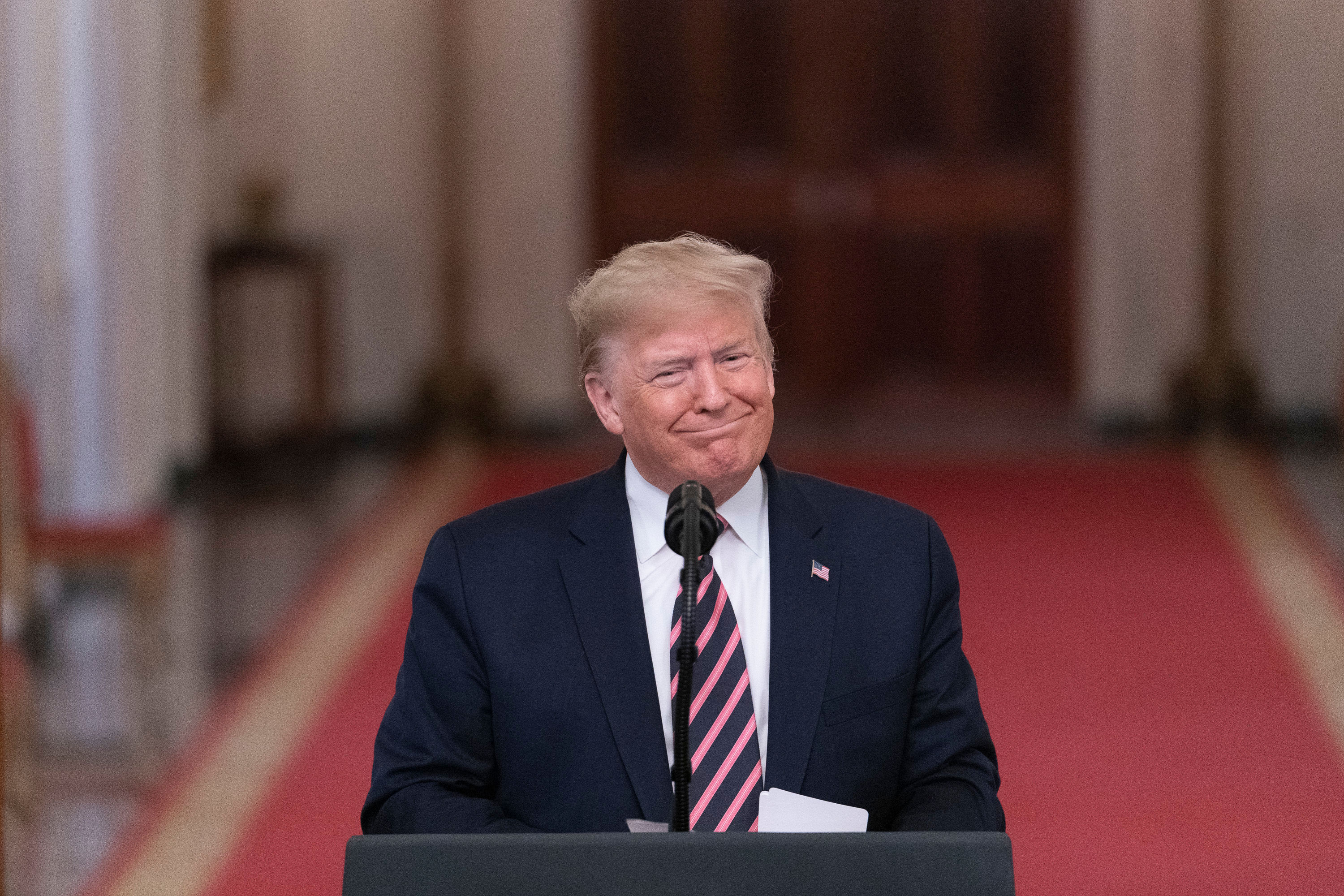TikTok … The Clock Ticks Down on a Potential Trade War
How this whole confusing—and very likely unnecessary—mess has the potential to spark a techno-cultural battle with Beijing with wide-ranging implications

The smarter way to stay on top of the streaming and OTT industry. Sign up below.
You are now subscribed
Your newsletter sign-up was successful
At press time, the clock was ticking down towards President Donald Trump’s extended Sept. 27 deadline for Chinese-owned ByteDance to sell its wildly popular social video sharing app TikTok to an American-owned company or face an outright ban in the U.S.
Citing national security concerns, the president seems to have dug in his heels on this issue. And the Chinese are showing no signs of backing down. In short, these are two trains barreling toward each other at full speed on the same track.
President Trump’s original deadline for banning the application was last Sunday (Sept. 20) at midnight, but it was extended for one week after Trump gave his tentative blessing to a proposed last-minute deal between Oracle and Walmart to acquire TikTok’s global operations.

However, the devil was in the details. With 100 million U.S. users out of a worldwide base of approximately 800 million, the app is estimated to be worth about $60 billion. Oracle and Walmart were offering a combined $12 billion.
Soon after the deal was announced, ByteDance claimed that it would retain control of 80% of the new TikTok Global subsidiary, but that would be diluted after an IPO at some point in the future.
On Sunday, Oracle and Walmart claimed that ByteDance would own 0% and have no control.
Trump weighed in on Fox & Friends Monday, saying he won’t accept the deal unless the American partners have complete control. “And if we find that they don't have total control, then we're not going to approve the deal,” he said.
The smarter way to stay on top of the streaming and OTT industry. Sign up below.
Also read: Trump Blesses Oracle/Walmart TikTok Bid
The state-run English-language newspaper China Daily blasted Trump’s demands in an editorial piece Wednesday, headlined, “No Disguising Proposed TikTok Deal Is a Dirty and Underhanded Trick.”
“What the United States has done to TikTok is almost the same as a gangster forcing an unreasonable and unfair business deal on a legitimate company,” reads the editorial. “China has no reason to give the green light to such a deal, which is dirty and unfair and based on bullying and extortion. If the U.S. gets its way, it will continue to do the same with other foreign companies.”
Chinese regulators have already restricted the sale of certain AI technologies to foreign companies, essentially blocking the peddling of the source code or the core algorithm behind TikTok, which is really the brains behind the whole operation.
As envisioned, the TikTok Global subsidiary would license use of the app from ByteDance, but that wouldn’t seem to assuage any of the president’s national security concerns, and Chinese regulators seem unwilling to even let Oracle examine the source code to ensure compliance with U.S. regulations.
Swamp Thing
Adding to the confusion, shortly after tentatively approving the deal, President Trump told supporters at a fundraising rally in South Carolina that he asked the companies to do him “a favor” by putting $5 billion into a “Patriotic Education Fund,” designed to “educate people as to [the] real history of our country—the real history, not the fake history."
This has become a motif for the Trump campaign after he decried "the liberal indoctrination of America's youth" at a Sept. 17 Constitution Day speech. He went on to slam the 1619 Project, a Pulitzer Prize-winning New York Times initiative aimed at teaching students about slavery. Trump called it "toxic propaganda."
However, when asked about the Patriotic Education Fund, Oracle, Walmart and ByteDance denied any knowledge of it.
ByteDance released a statement Sunday saying, "Some news media reported that TikTok will set up a $5 billion education fund in the United States. We would like to clarify that it was also our first time hearing about the news."
The statement stressed that ByteDance "has been committed to investing in the education field, and plans to work with partners and global shareholders to launch online classroom projects based on AI [artificial intelligence] and video technology for students around the world."
Oracle released a statement saying that TikTok Global partners plan to create an "AI-driven online curriculum to teach children from inner cities to suburbs" encompassing a range of topics, including history. However, they didn’t commit to $5 billion and that’s not quite the Patriotic Education Fund described by Trump.
The fund itself handed TikTok plenty of ammunition as it filed for a preliminary injunction Wednesday in the U.S. District Court for the District of Columbia to halt Trump’s executive order from going into effect.
Judge Carl Nichols held a hastily called telephone hearing on the matter Thursday morning.
TikTok argued that there was no immediate national security risk to justify a ban and that even a temporary ban would cause irreparable harm to the company. TikTok accused the Trump Administration of using “national security” as a thinly veiled pretext and alleged that the president was motivated “by political considerations relating to the upcoming general election.”
Election Connection?
Essentially, TikTok’s case for an injunction rests on whether Trump’s security risk assessment is genuine or just politically motivated grandstanding. To date, the president has provided no evidence that the app represents a national security risk.
It’s hard to argue that the president’s request for such a highly-partisan $5-billion “favor” isn’t politically motivated, if not downright illegal. Plus, the president has certainly been getting a lot of political milage out of the deal, telling supporters that it will create 25,000 jobs in Texas and raise $5 billion in taxes.
In response to the fund, Democratic presidential nominee Joe Biden said, “He’s talking about how we have to make money off of it. I mean, what the hell is he talking about? Either it is a security risk or isn’t a security risk.”
Biden did admit that there are genuine concerns “that TikTok, a Chinese operation, has access to over 100 million young people, particularly in the U.S.” However, he questioned the timing of Trump’s intervention. “What I always worry about though, is what Trump does and the way he does it on the eve of an election. All of a sudden he’s decided he’s going to deal with TikTok,” Biden said.
It’s worth noting that Biden campaign staff have been asked to remove the app from their cell phones due to security risks. And the app was recently banned in India amid concerns about the company’s data harvesting practices.
Grudge Retort?
But Trump’s grudge against TikTok goes a bit deeper. Young activists have used the platform to protest against the President’s policies. Most famously, they first drew his ire by flooding his campaign website with requests for free tickets to his June 20 campaign rally in Tulsa, Okla., with no intention of showing up. Some TikTok users bragged that they had reserved over 1,000 seats. The stunt lead GOP organizers to boast that they were expecting a crowd of over a million people and set up an outdoor overflow area outside the stadium venue with giant-screen projectors to carry the president’s address. In the end only about 6,200 real attendees actually showed up.
The teens of TikTok have also organized efforts to flood Trump’s campaign website with orders for MAGA hats, and then abandon their carts with no intention of paying for them. This has the effect of showing that the hats are out of stock, when in fact, thousands are sitting in warehouses waiting to be shipped. In addition, they tried to flood Yelp with negative reviews of Trump’s hotels and resorts.
In their petition for an injunction, TikTok lawyers argued that the mercurial President was trying to punish the company for the embarrassment its youthful users have caused him.
The judge urged the government to delay the process and seemed to indicate that he would issue a ruling before the deadline.
If it were to go into effect, a ban would mean that users who currently have the app installed could continue to use it, for the time being, but they wouldn’t be able to download patches and essential security updates and new users wouldn’t be able to download it from the Apple App Store or Google Play. According to data from Sensor Tower, last week’s deadline reportedly led to a surge in last-minute downloads of the TikTok app with 247,000 new installs on Friday, a 12% increase from Thursday.
Then, in the second phase, the U.S. would move to block any internet transit or peering services related to the app starting Nov. 12, effectively rendering it useless in the U.S.
For its part, the Chinese Ministry of Commerce said it has come up with a list of “unreliable entities,” in a not-so-thinly veiled threat to retaliate against U.S. tech firms if the ban goes ahead this weekend. The Chinese did not publish the list, but it would undoubtedly seek to punish U.S.-owned tech firms with extensive ties to China. It could even extend to cultural imports like Hollywood films. Even before the pandemic, the Chinese box office was expected to overtake the U.S. box office this year. Now, China is one of the few places in the world where theaters are starting to get back to normal.
In short, the China government has a lot of levers to pull and potential targets for retaliation. On the other hand, it’s hard to see how it would be in their interests to hand President Trump a major victory on the eve of an election. Similarly, it’s hard to see how the President could back down now and save face.
Overall, the whole confusing mess has the potential to spark a techno-cultural trade war with Beijing that could have wide-ranging implications in the face of already strained Sino-American relations.
Freelancer Scott Lehane has been covering the film and TV industry for almost 30 years from his base in southern Ontario, near Toronto. Along with several Future plc-owned publications, he has written extensively for Below the Line, CinemaEditor, Animation World, Film & Video and DTV Business in the U.S., as well as The IBC Daily, Showreel and British Cinematographer in the U.K. and Encore and Broadcast Engineering News in Australia, to name few. He currently edits Future’s Next TV, B+C and Multichannel News daily SmartBriefs. He spends his free time in the metaverse, waiting for everyone else to show up.

